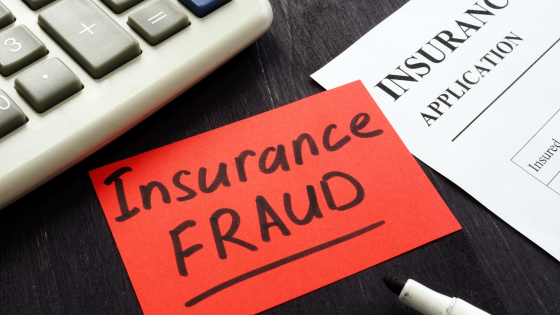Watch out for phony insurance agents. Although the majority of insurance agents provide an honest service, there are bad apples. These false agents divert insurance premiums, leaving people without the coverage they need when a claim occurs. Learn how to avoid this insurance scam.
How Premium Diversion Hurts Policyholders
Imagine you buy a homeowners insurance policy through an agent, receive insurance documents that outline your coverage, and make regular insurance premium payments. Everything seems fine. Then, a fire damages your kitchen and you need to file a claim. That’s when you find out your insurance policy doesn’t exist. You’ve been scammed, and now you have a claim with no coverage.
According to the FBI, insurance fraud costs more than $40 billion each year. That’s about $400 to $700 in increased premiums for the average U.S. family. Premium diversion (where the agent embezzles insurance premiums) is the most common type of insurance fraud. In this scam, insurance agents don’t send premiums to the underwriter and instead keep the funds for themselves. In other schemes, the scammer sells insurance without a license and collects premiums but then fails to pay claims.
Real-Life Examples of Insurance Fraud
Insurance fraud is all too common.
According to ABC News, a licensed insurance agent in Alabama has been arrested and charged over fraudulent activities that caused more than $600,000 in losses. The agent’s former employer says he issued fictitious insurance and financial products to divert premiums and other funds for his personal benefit.
As another example, Property Casualty 360 says an insurance agent in Florida has received a 14-year prison sentence and has been ordered to pay more than $8.3 million in restitution for wire fraud and money laundering in connection with the sale of fraudulent insurance policies. The agent collected more than $4.8 million in premium payments, kept the funds, and issued fake documents.
In yet another case, Insurance Business says a former insurance agent in California illegally pocketed $37,000 in commissions on life insurance policies that lapsed.
How to Protect Yourself from Fraud
Stories about fraudulent insurance agents are alarming. However, it’s important to keep in mind that the vast majority of insurance agents are not scammers. Most of them can help you secure the coverage you need to protect your assets. You just need to protect yourself from the few bad apples out there.
- Trust your gut. If you have questions or concerns, don’t sign any agreements or write any checks until you’ve completed additional due diligence and feel confident that everything is on the up and up.
- Verify the agent and insurance company. As false agents may issue fake insurance documents, the fact you have a copy of your policy may not prove your insurance coverage is genuine. If you have any reason to be concerned – or if you’d just rather be safe than sorry – take steps to verify the information on your own. In Hawaii, you can use the Department of Commerce and Consumer Affairs site to look up license information for individuals and companies. You can also contact the insurance carrier directly to verify your policy information and the agent claiming to represent them.
- Work with reputable agents. Anyone can create a website or social media account claiming to be an agent. When you search for an insurance agent, use sources you trust. If an agent is offering rates that seem too good to be true, it might be because they’re not real.
Don’t get taken in by an insurance scam. Do you need an agent you can trust to find reliable coverage for your business or personal insurance? FICOH’s network of agents includes 27 highly-reputable independent agencies. Find an agent.

